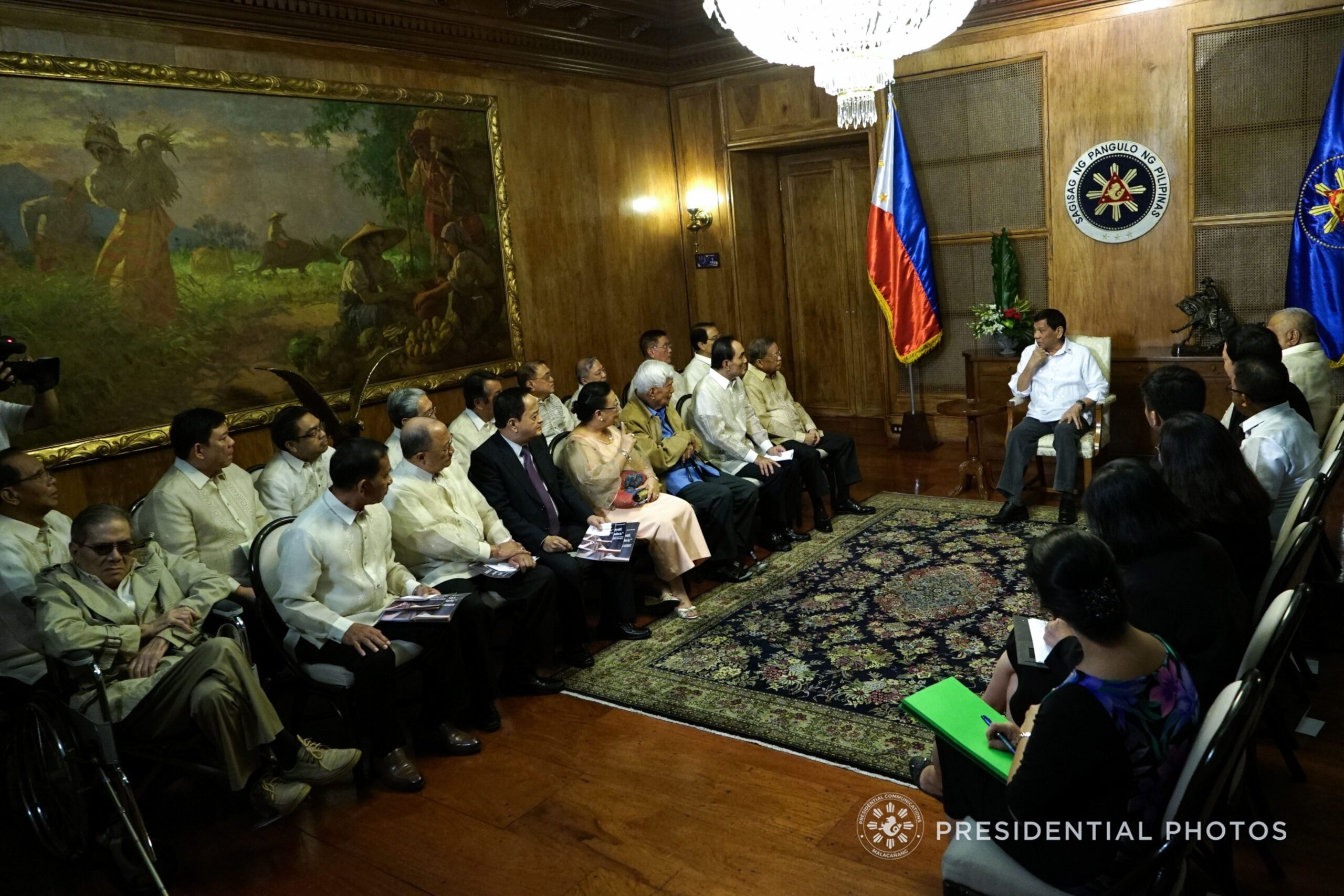SUMMARY
This is AI generated summarization, which may have errors. For context, always refer to the full article.

MANILA, Philippines – The Consultative Committee (Con-Com) tentatively agreed to include a self-executing provision regulating political dynasties in the new constitution they will propose to President Rodrigo Duterte and Congress.
Con-Com member and former dean of De La Salle University’s College of Liberal Arts Julio Teehankee said there was a consensus for a provision that will prohibit relatives within the second civil degree of consanguinity or affinity from running in the same elections or succeeding their relative.
“If there is an incumbent national official, no relative up to the second degree of consanguinity or affinity shall be allowed to run for governor, mayor, or district representative,” Teehankee said after the meeting on Wednesday, March 7.
“The same goes for the local. For the local, no relatives related to the second degree of consanguinity [or] affinity shall be allowed to run simultaneously and to succeed the incumbent,” he added.
This means, for example, that an official cannot be succeeded in his or her post by a grandson, son, spouse, sibling, father, or grandfather. However an official’s cousin, niece, or nephew can succeed him or her, or run for a local position in the same elections.
The same provision can be found in the Sangguniang Kabataan Reform Act of 2015. This mode of regulating political dynasties was deemed acceptable by some lawmakers, including Senator Francis Pangilinan.
Asked why the Con-Com decided to regulate and not totally ban dynasties, Teehankee said the group wanted to still give voters a choice.
“Essentially, we still have to respect the principles of democracy. What we are trying to avoid here is a monopoly of power and perpetuity which will result in an unhealthy political system,” he said.
“If ever one would argue that his or her political family is really accepted by the people, then let’s all start at a level playing field and let the people decide eventually under the new rules of the game,” he added.
However, at this point, it is not yet clear if the restriction on relatives within the second degree should apply across the board for national positions – president, vice president, senator, congressman.
Rodolfo Robles, another Con-Com member, said the group decided to discuss the dynasty provision to address qualms of Filipinos about federalism leading to warlordism.
“Let’s finish with anti-dynasty [provision] so that those objecting because there’s no anti-dynasty [provision] become our allies,” he said.
Other modes of regulating dynasties: Other ways of regulating political dynasties have been proposed.
In a Senate hearing on Charter Change, Ateneo School of Government dean Ron Mendoza suggested allowing succession of relatives but not allowing them to occupy electoral posts at the same time – thin versus fat dynasties.
The Con-Com en banc is set to vote on the anti-dynasty provision on Monday, March 12. (READ: Con-Com to visit provinces for consultations from April to June)
How it’s different from current Constitution: In the 1987 Constitution, there is a provision prohibiting dynasties but its implementation requires a law.
“The State shall guarantee equal access to opportunities for public service, and prohibit political dynasties as may be defined by law,” reads Article II, Section 26.
Philippine Congress, often dominated by lawmakers from political dynasties, has yet to pass such a law.
What Duterte says: Only the other day, Duterte said dynasties may have been detrimental to the country but in some aspects, they can “be for the better.”
“I agree with you that dynasties are bad but sometimes it can be for the better,” he said during a Go Negosyo event.
He pointed out that he would not have run for the presidency if his daughter Sara Duterte-Carpio had not agreed to take his place as Davao City mayor.
Duterte-Carpio, said the President, is “running the show very well” as she has maintained peace, order, and economic stability in Davao City.
Con-Com member Susan Ubalde-Ordinario said Duterte’s views on the matter were not brought up during that day’s discussion. – Rappler.com
Add a comment
How does this make you feel?
There are no comments yet. Add your comment to start the conversation.